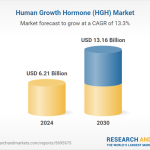In today’s fast-paced and highly competitive job market, the way organizations find, engage, and hire talent is being fundamentally transformed by technology. The traditional recruitment playbook, which relies heavily on job boards and manual processes, is no longer sufficient to meet the demands of a modern workforce. As companies strive to stay agile and attract top-tier talent, digital innovation is taking center stage, giving rise to smarter, more efficient, and more personalized approaches to hiring.
This comprehensive guide examines the significant technological advancements transforming talent acquisition, from the limitations of traditional job platforms to the emergence of AI, automation, social media recruitment, and data-driven personalization. It also explores critical aspects such as employer branding, ethical considerations, and the evolving role of predictive analytics. Whether you’re an HR leader, recruiter, or business strategist, understanding these changes is crucial for developing a forward-thinking hiring strategy that resonates with today’s talent and lays the groundwork for tomorrow’s workforce.
How Technology Is Reshaping Talent Acquisition
Today’s recruitment landscape is undergoing rapid transformation, driven by technology and an evolving workforce. In an era where competition for top talent is fiercer than ever, relying solely on traditional job boards falls short. Modern job recruitment platform solutions are leading the way, enabling HR teams and hiring managers to access a broader talent pool, automate repetitive tasks, and deliver a more human-centered candidate experience. These innovative platforms go beyond just listing vacancies—they leverage advanced technology to connect employers with the right candidates at the right time, ensuring organizations remain agile and competitive.
As recruitment tactics evolve, organizations are shifting toward integrated, data-driven approaches that prioritize personalization and candidate engagement. By doing so, companies cannot only stand out in a crowded market but also attract and retain high-performing talent more effectively than ever before.
The Limitations of Traditional Job Boards
Once considered the backbone of recruitment, traditional job boards now seem limited in several ways. With thousands of job postings competing for attention, many openings become lost in the noise. These platforms primarily attract active job seekers, often ignoring a vast segment of highly qualified individuals who aren’t actively searching but may be interested in new opportunities if approached. In addition, the lack of sophisticated filtering and matching means employers spend excessive time sifting through irrelevant applications, leading to delays in the hiring process and missed opportunities for quality hires.
The Rise of AI and Automation in Recruitment
Artificial Intelligence (AI) and automation have drastically reshaped the recruitment world by optimizing processes and reducing time-to-hire. Modern platforms utilize AI-driven algorithms to analyze vast amounts of candidate data, match applicants with relevant roles more accurately, and predict future performance within specific organizational contexts. Automation takes it a step further—screening resumes, scheduling interviews, and maintaining consistent communication, resulting in a seamless experience for both candidates and recruiters. As noted by SHRM, 85% of HR professionals say AI is a useful tool that accelerates the hiring process, highlighting its growing importance in creating recruitment workflows that are faster, smarter, and less susceptible to unconscious bias.
Leveraging Social Media and Professional Networks
Social media recruitment has evolved from simple job postings to dynamic engagement and storytelling, allowing for more effective recruitment strategies. Platforms like LinkedIn, Twitter, and Facebook aren’t just channels for vacancy announcements; they provide valuable spaces for showcasing company culture, interacting directly with prospective candidates, and sharing compelling content. Specialized platforms—such as GitHub for developers, Stack Overflow for tech talent, and Behance for creative professionals—enable recruiters to target and discover niche skill sets while observing candidates’ portfolios and reputations within their communities. This approach significantly deepens talent pools, far exceeding what generalist job boards offer.
Data-Driven Personalization and Predictive Analytics
Personalization is the new norm in digital recruitment. Modern platforms utilize data to personalize every interaction, from recommending jobs that align with a candidate’s interests to tailoring application workflows to match their professional backgrounds. AI-powered predictive analytics analyze historical hiring data and candidate behaviors to predict which candidates are most likely to accept an offer and remain with the organization in the long term. These insights reduce turnover, improve hiring quality, and enable HR teams to align talent strategy with business outcomes.
Employer Branding and Candidate Engagement
Employer branding has become a crucial differentiator in a competitive labor market. By investing in transparent communication, authentic storytelling, and employee advocacy, organizations can provide candidates with a clear understanding of what daily life, values, and growth opportunities look like within the company. Engaging digital content—such as “day-in-the-life” videos, employee testimonials, and virtual office tours—creates emotional connections with potential hires and supports inclusive, values-based recruitment that resonates with today’s workforce.
Challenges and Ethical Considerations
The integration of technology in recruitment carries critical challenges. While AI and automation provide efficiencies, they risk depersonalizing candidate interactions if not balanced with a human touch. AI algorithms can also reproduce existing biases unless diligently monitored and updated. Furthermore, maintaining compliance with data protection regulations and safeguarding applicant privacy is non-negotiable. Recruiters must be transparent about how data is used, educate themselves on fairness in algorithmic processes, and ensure that technology serves to enhance—not replace—genuine human judgment and relationship-building.
The Future of Talent Acquisition
The future of talent acquisition lies in embracing holistic, technology-driven platforms that combine the best of automation, personalization, and omnichannel engagement. Companies adopting these modern recruitment methods are not only better equipped to attract and engage standout talent, but they also position themselves to thrive in a continually evolving digital economy. By staying ahead of these trends—leveraging data, AI, and multi-channel strategies—employers can ensure lasting, mutually beneficial matches and a consistently competitive edge in the pursuit of world-class talent.









